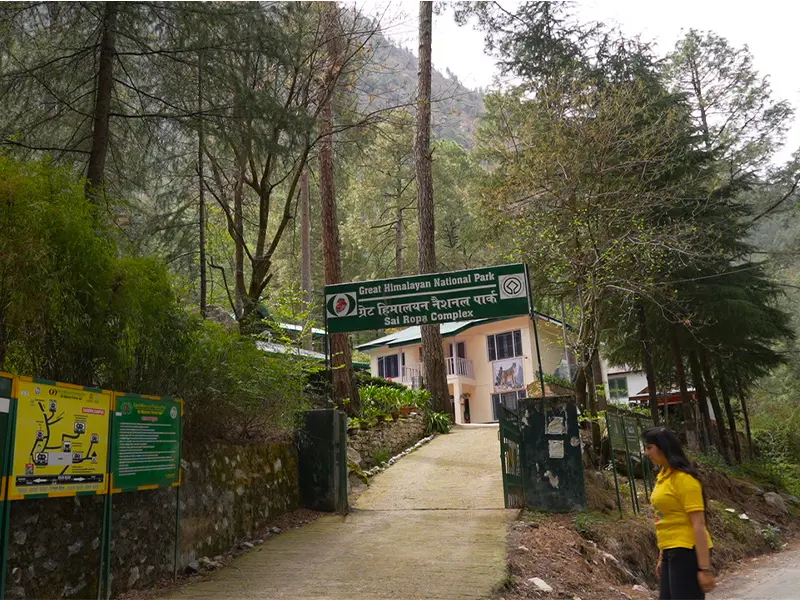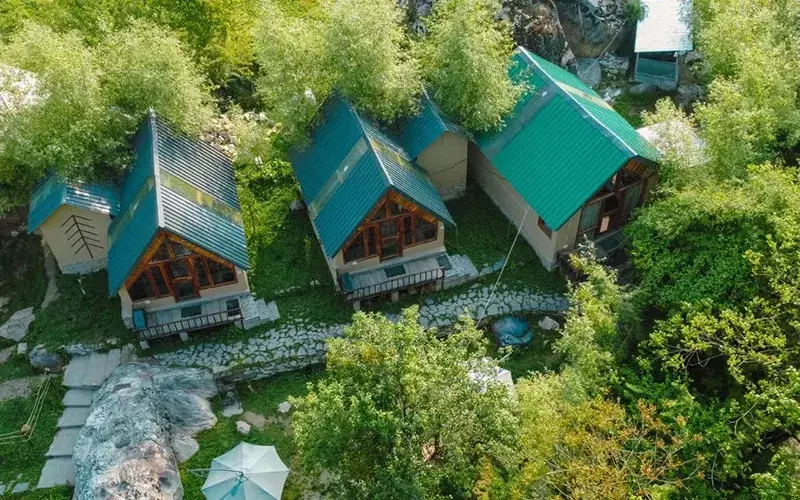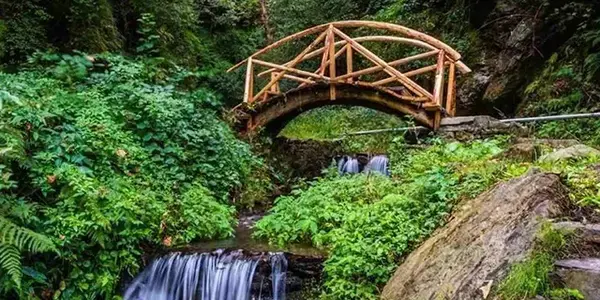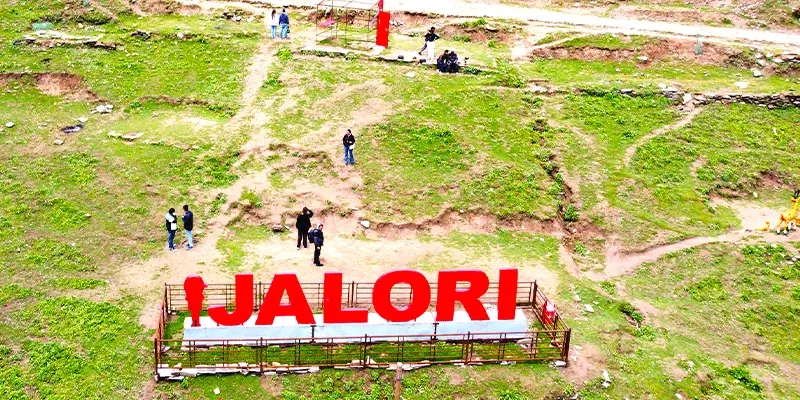


🌄 The Great Himalayan National Park Tirthan is not just another trekking destination — it’s a UNESCO World Heritage Site that was declared a national park in 1999. Spread across 1,171 square kilometers, the park preserves some of the richest ecosystems in the western Himalayas. Long before tourists arrived, this area was part of protected village forests used only for seasonal grazing and forest produce.
The park was formed by relocating nearby villagers and restricting any commercial activity inside. ...

Hotels In Jibhi
Stay close to rivers, forests, and peaceful mountain views.

Places To Visit In Jibhi
Top places to visit in Jibhi, naturally beautiful.

Images Of Jibhi
Experience Jibhi’s calm forests and rivers through stunning photos
Hotels In Jibhi
Places To Visit In Jibhi
Images Of Jibhi
Hiking shoes, quick-dry layers, and a rain jacket
Woolen cap and thermals if trekking beyond April
Lightweight backpack with refillable bottle
Best Months: April–June and October–November
Monsoon Warning: Avoid July–August due to leechy trails and landslides
No mobile signal inside the park; inform someone before your trek
Short treks (Rolla), moderate treks (Shilt, Nada), multi-day hikes
Birdwatching, wildlife tracking with guides
River dipping or meditation near waterfalls and streams
Siddu (steamed bread), river trout, Lingdi pickle
Herbal tea at guesthouses in Gushaini or Tirthan
Antacids, painkillers, band-aids, motion sickness meds
Altitude sickness pills if doing high-altitude routes
Mosquito repellent and Dettol wipes
Govt. ID and photocopy
Forest entry permit (get at the GHNP office)
Printed booking slips for guides or homestays
April to June and October to November
🌄 The Great Himalayan National Park Tirthan is not just another trekking destination — it’s a UNESCO World Heritage Site that was declared a national park in 1999. Spread across 1,171 square kilometers, the park preserves some of the richest ecosystems in the western Himalayas. Long before tourists arrived, this area was part of protected village forests used only for seasonal grazing and forest produce.
The park was formed by relocating nearby villagers and restricting any commercial activity inside. Now, no roads, machines, or settlements exist within GHNP. Everything you experience inside is untouched nature — alpine meadows, oak-pine forests, icy rivers, and wildlife like Himalayan tahr, musk deer, monal pheasants, and even elusive snow leopards.
Over the years, the Great Himalayan National Park Tirthan has become a quiet paradise for true nature seekers. It offers not just trails, but silence, learning, and deep forest immersion. Many treks like Rolla, Shilt Hut, and Rakti-Sar start from here.
🏞️ UNESCO World Heritage Site: GHNP received this recognition in 2014 for preserving Himalayan biodiversity — no motorized activity is allowed inside.
🥾 Pure Trekking Only: After the entrance gate at Gushaini, no vehicles go inside. All routes are on foot. Trails are clearly marked, ranging from 3 km (Rolla) to multi-day alpine hikes.
🌳 Dense Biodiversity Zone: The park is home to over 375 fauna species and 800+ flora species. Rare Himalayan birds and wild animals are regularly spotted.
🏕️ Camping Inside: With forest permits and registered guides, you can stay overnight at designated huts or tents. Camping under starlit skies is a highlight here.
📚 Eco Learning: It’s also a hub for environmental education — with guides explaining Himalayan ecosystems, medicinal plants, and glacial formations.
👨👩👧👦 Family Friendly Trails: Shorter trails like Rolla are safe and manageable for families with kids above 8–10 years, offering river views and easy terrain.
⚠️ Strict Entry Rules: Entry is allowed only with a forest permit and a licensed guide. No plastic or loud music is allowed. Pack wisely and respectfully.
A family from Bangalore visited Great Himalayan National Park Tirthan for their first ever trek. With two children, they chose the Rolla Trail — a 9 km round trip. Along the way, they saw langurs, crossed wooden bridges, and spotted a red-billed blue magpie. The kids called it "the best video game we ever played in real life."
A solo traveler on a longer trek toward Shilt Hut met a local guide who had been working in the park for 22 years. He told tales of snow leopard sightings, village relocation, and why "this forest still breathes because it has been left alone." These small encounters are what make GHNP magical — it’s not just a trek, it’s a story you walk through.
The Himalayan Mountains are a majestic mountain range in South Asia, spanning five countries. They boast the world's highest peaks, including Mount Everest. These young, growing mountains feature rugged, snow-capped peaks, deep valleys, and glaciers. The Himalayas influence regional climate, harbor unique biodiversity, and hold cultural and spiritual significance. They attract adventurers, nature lovers, and spiritual seekers from around the world.